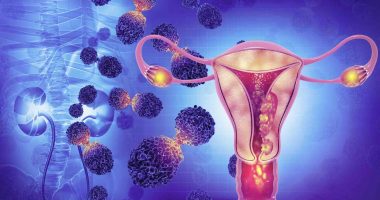- BARD1 Life Sciences (BD1) has welcomed positive results from an independent study of its autoantibody assay for detecting ovarian cancer
- Latest adjustments increased the test’s sensitivity for detecting ovarian cancer from 27 per cent to 91 per cent
- These encouraging results support the assay’s potential use for the early detection of ovarian cancer in high-risk women
- The company’s assay must undergo further research, optimisation, and technical validation before advancing to clinical validation studies
- BARD1 Life Sciences is up 5.19 per cent and trading at $3.24 per share
BARD1 Life Sciences (BD1) has welcomed positive results from an independent study of its autoantibody assay for detecting ovarian cancer.
Griffith University’s Mucosal Immunology Research Group (MIRG) was contracted to conduct the independent study. The purpose of the study was to evaluate BARD1’s research-use-only (RUO) kit alone and also in combination with cancer antigen 125 (CA125).
The MIRG study involved 241 samples, consisting of 160 ovarian cancer patient samples and 81 healthy control samples.
Griffith University’s study provided positive results, with similar performance to results previously reported in a separate study by the University of Geneva (UNIGE). Both of these studies were performed using the multiplex BARD1 kit, which was developed for use on the Luminex platform.
The previous UNIGE study indicated that the assay’s number of peptides could be reduced, while maintaining high levels of discrimination between ovarian cancer patients and controls. This meant that reducing the number of peptides would simplify the development and use of the test in a clinical setting.
Data from both studies also identified three BARD1 peptides that can consistently discriminate between ovarian cancer and the controls. The more recent MIRGE study showed that latest adjustments to the assay significantly increased the test’s sensitivity in detecting ovarian cancer.
Alone, CA125’s detection sensitivity was only about 27 per cent. However, when combined with two BARD1 peptides, CA125’s detection sensitivity increased to about 91 per cent.
These encouraging results support the assay’s potential for use in the early detection of ovarian cancer in women with Hereditary Breast and Ovarian Cancer (HBOC) syndrome.
BARD1’s CEO, Dr Leearne Hinch, commented on how promising these results are the for BARD2 autoantibody assay.
“We are committed to developing a test using our platform technologies to detect ovarian cancer early, save women’s lives and avoid unnecessary surgery in high-risk women with HBOC,” she said.
The company will need to conduct further research, assay optimisation, and technical validation of its autoantibody test, before advancing it towards clinical validation studies.
BARD1 Life Sciences is up 5.19 per cent, trading at $3.24 per share at 10:15 am AEST.








